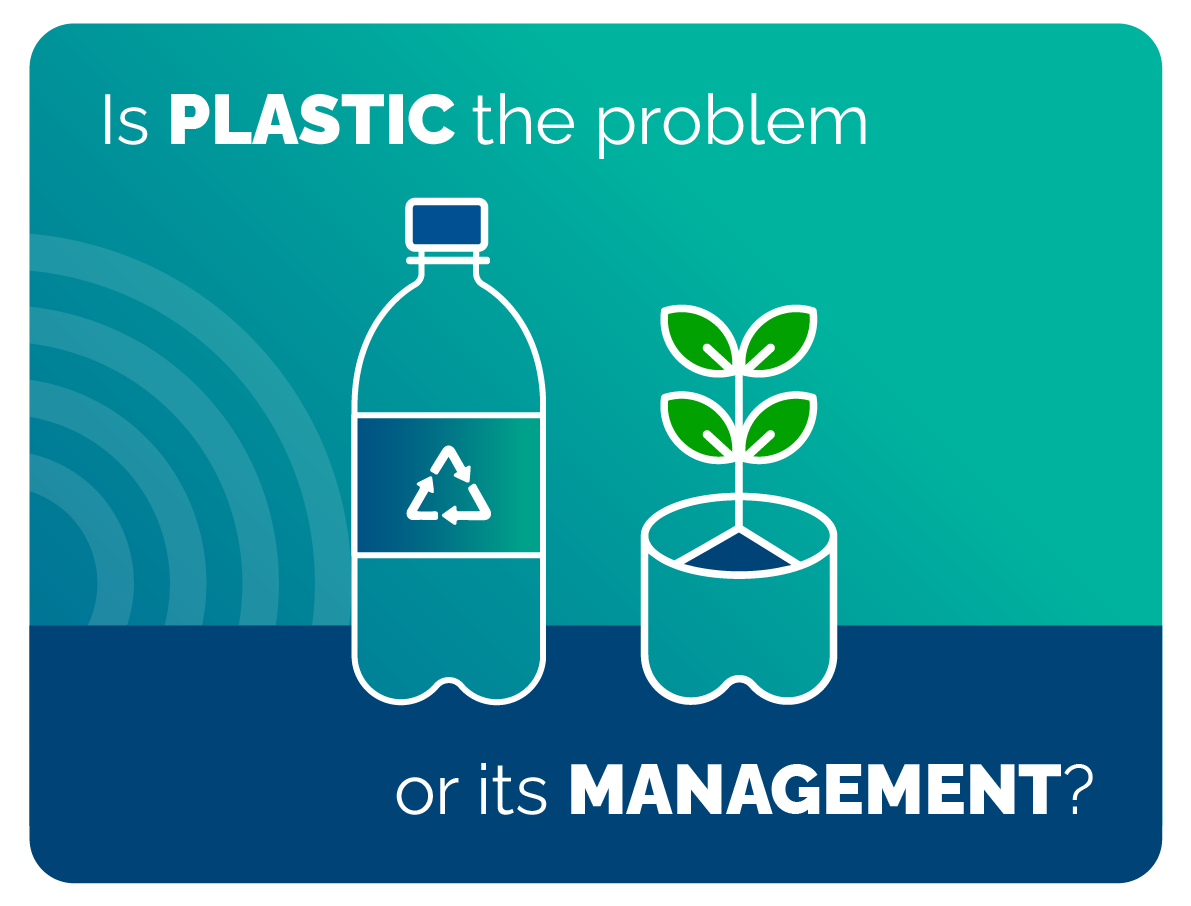The time has come to ask: is plastic the real problem or its management?
Always known for the damage it causes to the environment, plastics face a now-low reputation.
Nevertheless, it is undeniable that it is a key engineering resource. Its flexibility, strength, lightness, and its thermal, electrical, and chemical properties make it an asset that needs to be protected, studied, certainly improved, and, above all, better managed.
According to the OECD Global Plastics Outlook, plastic production is currently estimated at around 460 million tons and waste generation at around 353 million tons of which only 9% has been recycled. 19% was incinerated, 50% placed in controlled landfills, and the remaining 22% was abandoned in uncontrolled landfills or in the open, where there is a high probability of dispersal into the environment.
It is clear that the problem is not the material itself, but its management.
This condition makes it necessary to initiate an awareness-raising process aimed at spreading the proper management of waste, particularly plastic waste.
In order to analyze the problem of improper plastic disposal, it is essential to place attention on the industries. In particular, in first place for primary plastic production we find the packaging industry with 45,8% of the plastic material produced.
One might instinctively think that the solution is to eliminate or reduce the use of plastics in this sector, without thinking that, especially in the food and beverage sector, they have proven during the pandemic period to be an excellent ally in effectively protecting the product from possible viral contamination.
In addition, a study by Trucost for The American Chemistry Council demonstrated the possible consequential outcomes of replacing plastic with various alternative materials. It was estimated that the use of alternative materials to plastic not only increases the environmental cost, but also the amount of material that must be used because these alternatives have a greater mass than plastic.
Not a sustainable choice at all.
What can we do to make our own contribution to the environment?
- Improve one’s method of managing the disposal phase that is, the end of life of plastics. It is essential to focus on the idea of recovering more and more waste so that it can be recycled or reused;
- Use low-carbon energy sources so as to reduce environmental costs;
- Exploiting the innovativeness of bio-based and biodegradable plastics.
We at Maca have already started this process and are always working towards environmental sustainability. We are constantly moving toward a greener future, and our flexible packaging travels with us.
We are aware of the importance of protecting the environment, and we work hard every day to ensure that all our activities affect the land as little as possible.
Minimizing the weight and volume of packaging, using renewable sources and reducing CO2 emissions are just a few key points on which our policy is based.
Dress your product in a green packaging and start making your contribution to an ever more sustainable future. Contact us.


